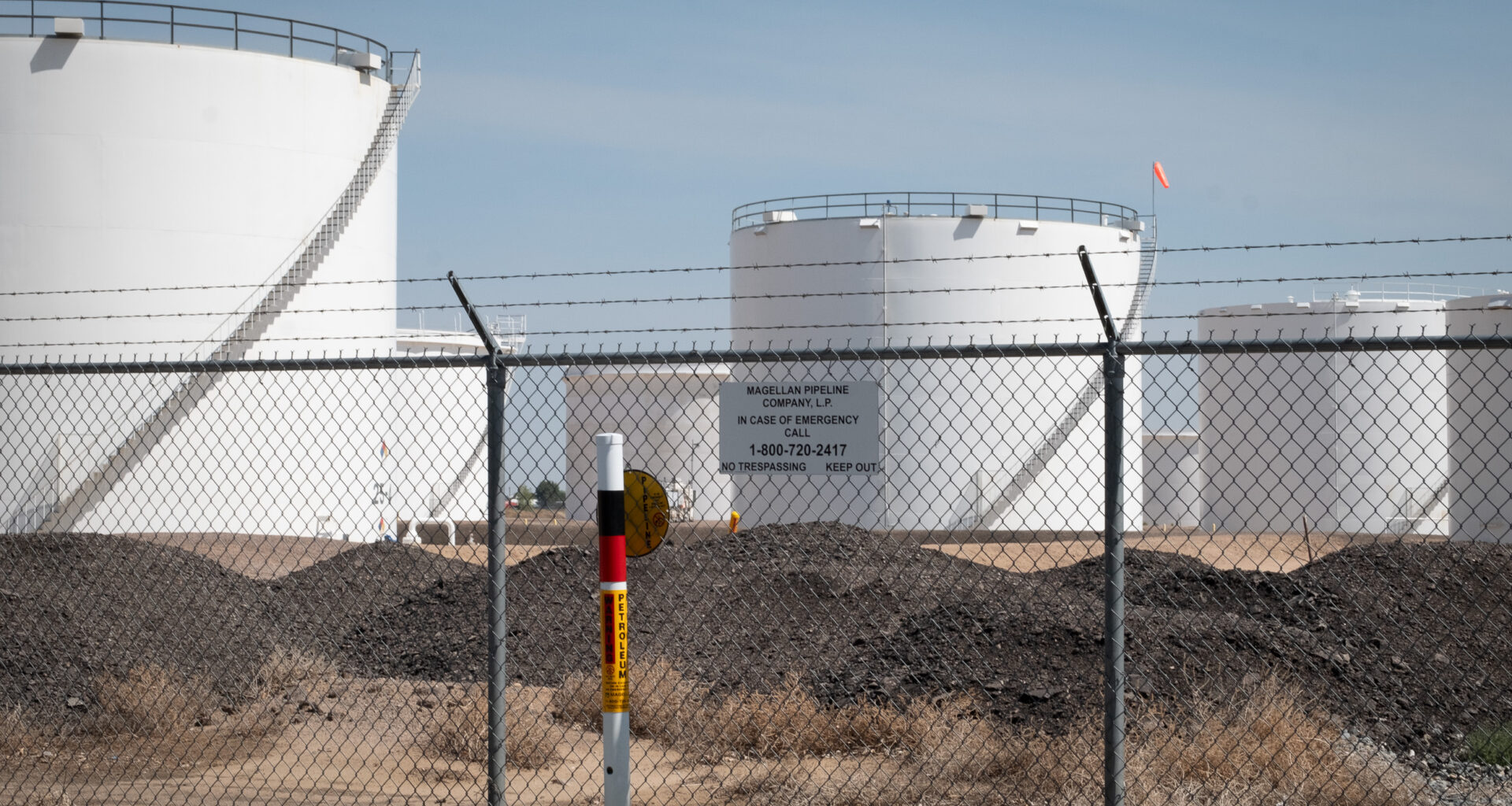Two environmental groups are suing the Polis administration for missing air pollution permit deadlines and allegedly giving two metro Denver fossil fuel terminals “a free pass to pollute.”
The lawsuit, filed Sept. 3 in in Adams County District Court, says the state’s Air Pollution Control Division has missed key deadlines to issue or renew permits required under the Clean Air Act to operate Magellan Pipeline’s Aurora terminal bulk fuel and tank compound, and Crestone Peak Resources’ oil and gas processing plant in east Aurora.
Finishing the initial permit for Crestone should have happened in April, according to state and EPA rules, and a renewal for Magellan Pipeline should have been finished in June, the lawsuit claims. Writing the rules and requiring compliance “would likely reduce pollution and improve air quality” for the Front Range, according to the Center for Biological Diversity, which joined with 350 Colorado in the lawsuit.
“Toxic air pollution can cause serious health effects ranging from neurologic disease, respiratory compromise, reproductive problems, cancer and more,” Dr. Nikita Habermehl, a pediatric emergency physician and 350 Colorado member, said in a statement accompanying the lawsuit. “This is an urgent public health issue, and we need action to ensure polluters are held accountable to protect people and communities.”
The Air Pollution Control Division said officials could not comment on litigation matters.
“For the health of Coloradans, the state’s foot dragging has to stop,” said Jeremy Nichols, a senior advocate at the Center for Biological Diversity. “Polluters need to be held to modern pollution control standards so their neighbors can stop choking on these filthy emissions.”
Emissions from the two facilities contribute volatile organic compounds and other chemicals to the dirty air that bakes on hot summer days and creates toxic ozone, a danger for kids with asthma and adults with respiratory conditions. The counties on Colorado’s northern Front Range have been severely out of compliance with EPA ozone limits in recent years, and the state is under deadlines to write emissions-reductions plans to lessen the violations.
Nichols said the lawsuit is aimed at forcing Colorado to meet deadlines for finalizing permits and holding public hearings, and then enforcing tighter regulations contained in the new permits.
In another move to curb emissions from some of the larger Front Range polluters, Earthjustice said it would continue to appeal a U.S. District Court’s rejection of its challenge to the Suncor oil refinery in Commerce City. Earthjustice had sued Suncor over a series of emissions violations on behalf of Colorado GreenLatinos and other environmental advocates, who said Suncor’s repeated violations are poisoning the neighborhood.
Suncor asked the U.S. District Court to dismiss the case, and in May the court agreed, saying the EPA and state health department were already enforcing and prosecuting the emissions violations. Earthjustice is appealing to the 10th Circuit Court of Appeals, saying that year after year of Suncor violations are proof that neither the state or EPA are aggressively pursuing Suncor and defending vulnerable neighbors.
Based on facts, either observed and verified directly by the reporter, or reported and verified from knowledgeable sources.
